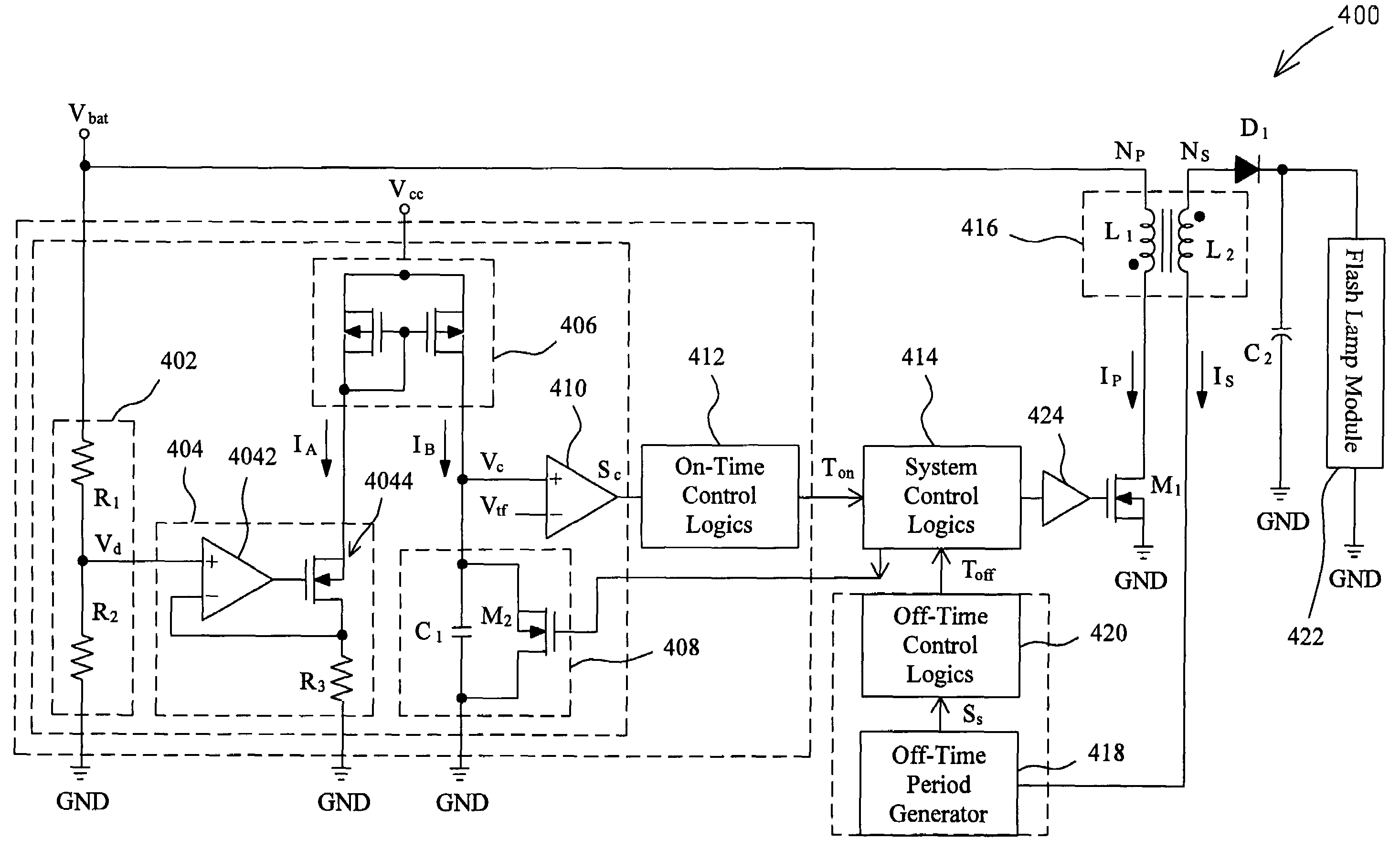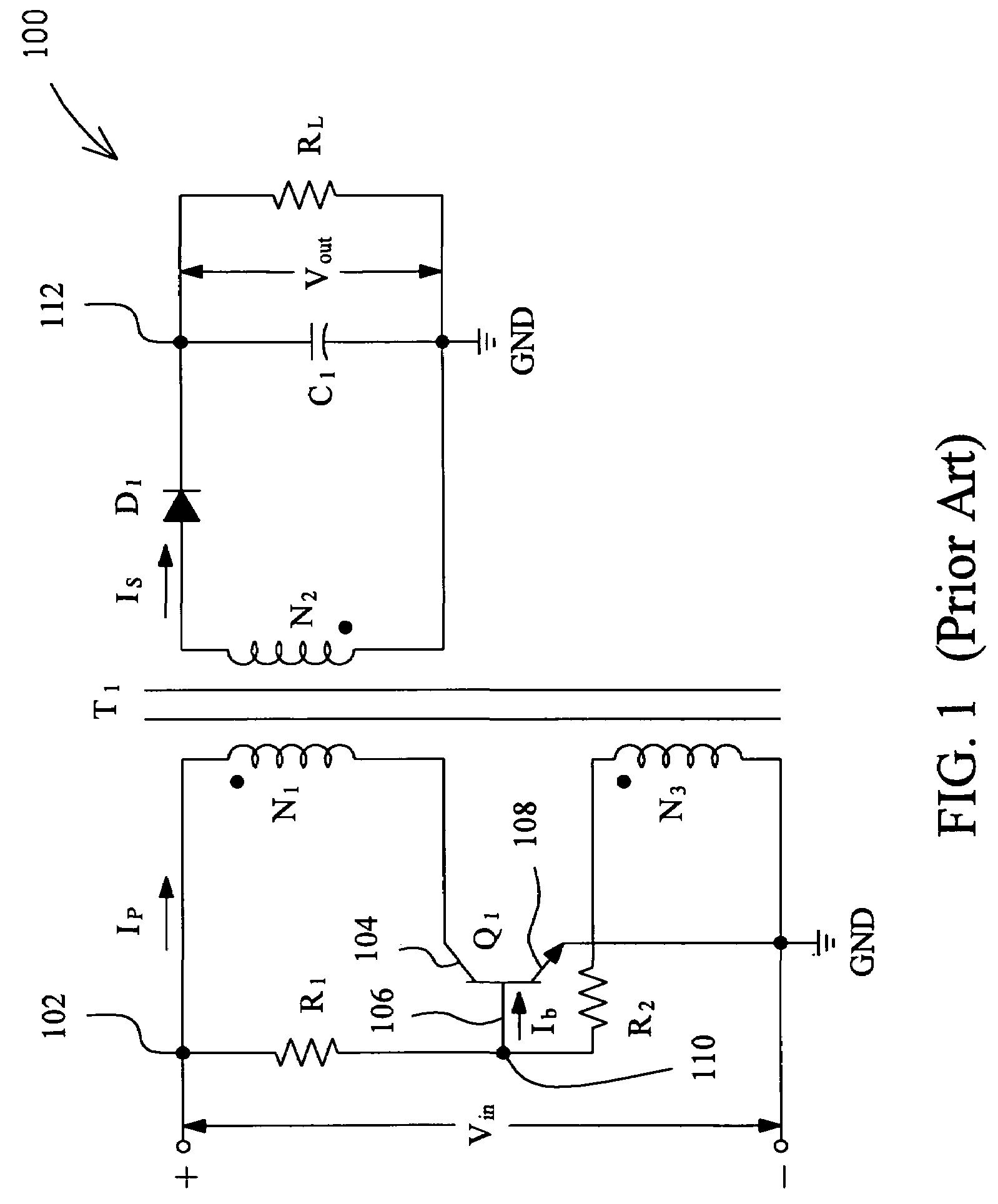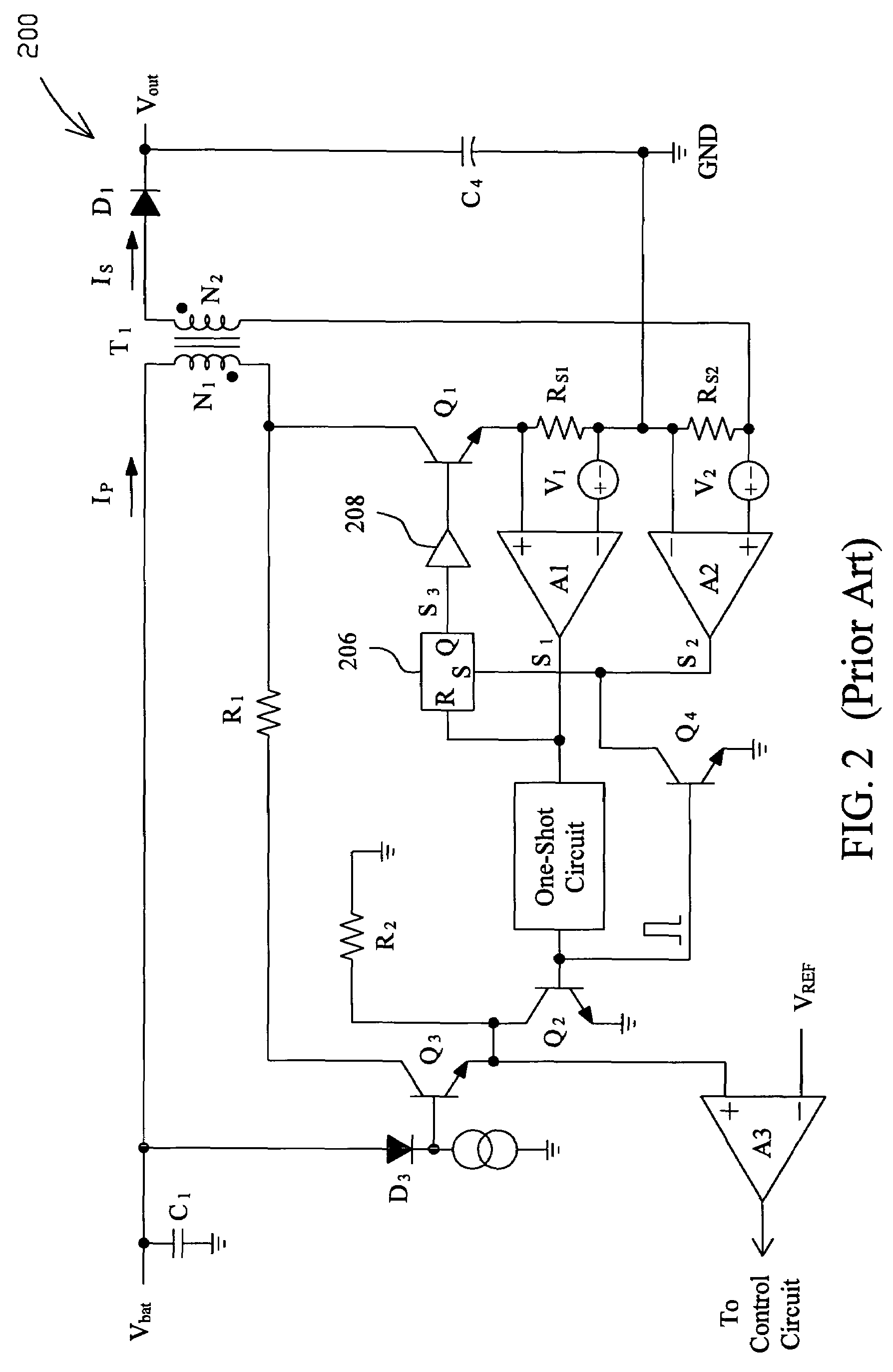Apparatus and method for constant delta current control in a capacitor charger
a capacitor charger and constant delta current technology, applied in the direction of electric variable regulation, process and machine control, instruments, etc., can solve the problems of high switching loss, inefficient operation, and inability to set the charging current i/sub>p/sub> of the charger b>200/b>, so as to prevent the transformer from magnetic saturation and no power loss, simple and precise control
- Summary
- Abstract
- Description
- Claims
- Application Information
AI Technical Summary
Benefits of technology
Problems solved by technology
Method used
Image
Examples
Embodiment Construction
[0019]FIG. 4 shows an application of one embodiment according to the present invention for a flash lamp module. In a capacitor charger 400, a transformer 416 has a primary winding L1 and a secondary winding L2 with a turns ratio NP:NS, a transistor M1 is connected between the primary winding L1 and ground GND, and the primary current IP flowing through the primary winding L1 is controlled by the switching transistor M1. Briefly, the capacitor charger 400 has system control logics 414 to switch the transistor M1 through a driver 424 in response to an on-time decision circuit and an off-time decision circuit. The on-time decision circuit includes on-time control logics 412 to determine the on-time period Ton for the transistor M1 according to the output SC generated by an on-time period generator that includes a voltage generator 402, a current source 404, a current mirror 406, a charge / discharge circuit 408, and a comparator 410. On the other hand, the off-time decision circuit inclu...
PUM
 Login to View More
Login to View More Abstract
Description
Claims
Application Information
 Login to View More
Login to View More - R&D
- Intellectual Property
- Life Sciences
- Materials
- Tech Scout
- Unparalleled Data Quality
- Higher Quality Content
- 60% Fewer Hallucinations
Browse by: Latest US Patents, China's latest patents, Technical Efficacy Thesaurus, Application Domain, Technology Topic, Popular Technical Reports.
© 2025 PatSnap. All rights reserved.Legal|Privacy policy|Modern Slavery Act Transparency Statement|Sitemap|About US| Contact US: help@patsnap.com



